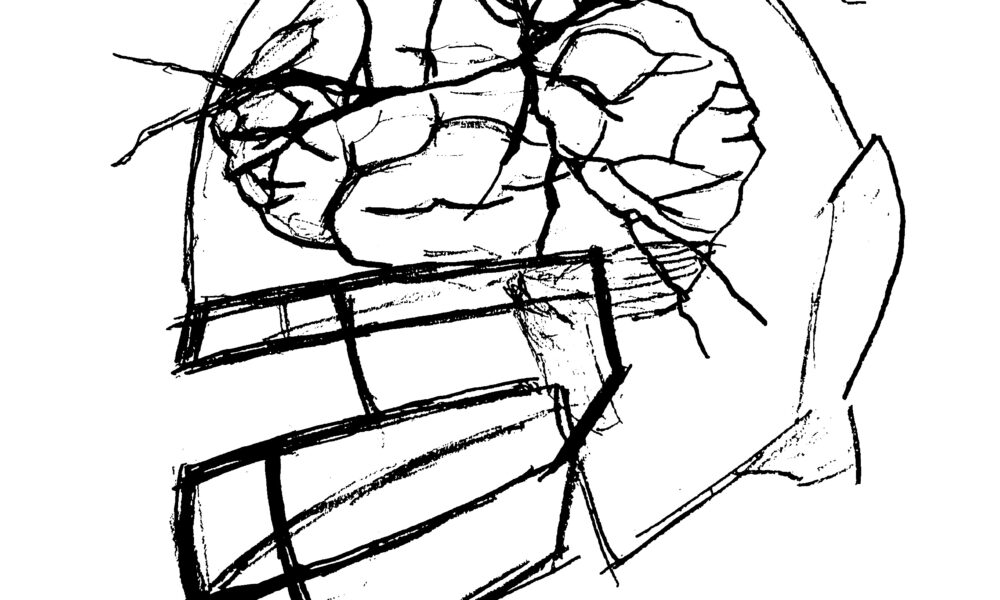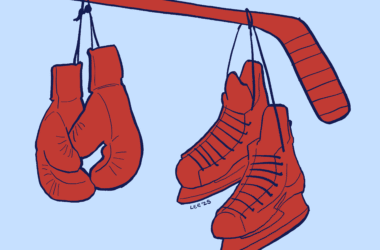Professional sport is a bastion of prowess and unwavering determination. In times where mental health and introspection are evermore pertinent, society is starting to recognize the importance of mental health advocacy, especially for high-level athletes. While recent years have seen a surge in discussions surrounding mental health, particularly among women athletes such as Simone Biles and Jordan Chiles, the discourse around men athletes’ mental health is still often epitomized by silence.
Traditional images of men athletes are one of stoicism, resilience, and unwavering toughness. This stereotype, perpetuated by patriarchal expectations, creates a toxic environment where men athletes feel compelled to suppress their emotions and mental health struggles. The “boys don’t cry” mentality, deeply ingrained in society, often leads men athletes to suffer in silence. Expectations to suppress emotions can lead to a buildup of stress, anxiety, and depression. The pressure to perform and the fear of being perceived as weak or vulnerable can exacerbate these issues. The toxic masculinity standards upheld by misconceptions about men athletes can lead to self-destructive behaviours, substance abuse, and even suicide. Misguided and problematic standards stifle open discourse surrounding mental health, making it difficult for athletes to acknowledge their own humanity.
While organizations like Movember have made significant strides in raising awareness about men’s mental health, the conversation is rarely centred around specific challenges faced by men athletes. Constant public scrutiny and the high demands placed on athletes can strain their mental well-being. The shortage of adequate mental health resources for men athletes at the professional and collegiate levels, albeit decreasing, compounds the problem. Although progress has been made, many athletes still hesitate to seek the necessary support and treatment they might need.
The media plays a crucial role in reshaping public perceptions of mental health and challenging stereotypes that prevent open dialogue. While there has been increased coverage of men athletes’ mental health struggles, societal expectations still place elite athletes on a pedestal, perceiving them as unstoppable. Women athletes face immense media backlash for challenging mental health stereotypes. Take, for example, Simone Biles removing herself from the Olympics for her mental health, and being dubbed a “national embarrassment.” For men athletes, the challenge is distinct yet similarly painful; the idea of traditional powerful masculinity is what drives men athletes to hide their emotions from the world to maintain their image. To ignite meaningful change, media and cultural leaders must exemplify a standard of openness, dismantling the façade of perfection expected from athletes.
In recent years, a growing number of men athletes have begun to challenge the traditional norms of masculinity and openly discuss their mental health struggles. Kevin Love, a star NBA player for the Miami Heat, has been a vocal advocate for mental health awareness, sharing his experiences with anxiety and depression. Former NFL player Brandon Marshall has also been a prominent voice, using his platform to raise awareness and reduce stigma.
To address these challenges, sports organizations, coaches, and athletes themselves must create a more supportive and understanding environment not only for men, but for all athletes. This involves breaking down the stigma surrounding mental health, encouraging open dialogue, and providing accessible mental health resources.
By normalizing conversations about mental health, we can empower athletes to seek help without fear of judgment or repercussions. Encouraging athletes to share their experiences can inspire others to do the same, creating a ripple effect of positive change. Additionally, all sporting institutions making the effort to provide adequate mental health resources, such as therapists and counsellors, can ensure that athletes are supported to overcome these challenges.
By sharing their stories, athletes like Love and Marshall inspire others to seek help and break the silence, demonstrating that it is okay to be vulnerable and that mental health is just as important as physical health. Just as women athletes like Biles and Chiles have bravely spoken out about their mental health struggles, it is time for men athletes to feel as though they can follow suit. By sharing their stories, they can not only inspire others, but can also help to dismantle the harmful stereotypes that perpetuate the silence surrounding men’s mental health in sports. It is only by addressing these issues head-on that we will be able to create a truly inclusive and supportive environment for all athletes to thrive both on and off the field.







